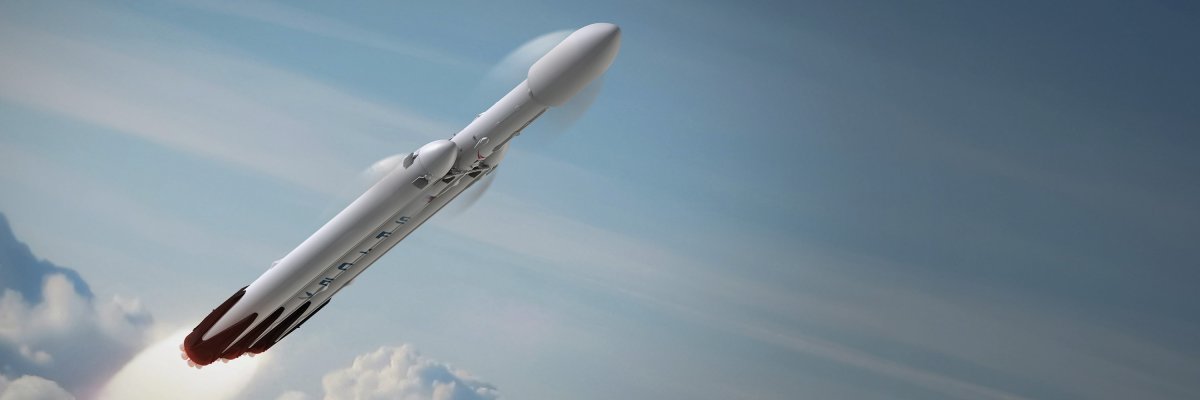
The Heavy Rocket
SpaceX just celebrated one historic launch, and this summer, the company hopes to celebrate another when they send their Falcon Heavy rocket into space. The rocket will use two previously used boosters, and according to SpaceX’s website, “It will be the most powerful operational rocket in the world by a factor of two.”
Elon Musk, CEO of SpaceX, had this to say about the rocket:
[infographic postid=”59147″][/infographic]
Falcon Heavy is one of those things that at first it sounded easy. We’ll just take two first stages and use them as strap-on boosters. And like, actually no, this is crazy hard, and required a redesign of the center core, and a ton of additional hardware. It was actually shockingly difficult to go from a single core to a triple-core vehicle.
Falcon Heavy is, as the name implies, a massive craft that can create more than 5 million pounds of thrust in liftoff. The rocket can handle such a large payload that it is even capable of carrying the Dragon spacecraft. The only rocket to have ever before carried a larger payload was the Saturn V Moon rocket, which hasn’t flown since 1973.
Falcon Heavy will be a huge step forward on the path to less expensive, more advanced space exploration. The rocket with a close operational ability, the Delta IV Heavy, costs three times as much as SpaceX’s Falcon Heavy, which was designed with the intent to one day carry humans into space, specifically to Mars and/or the Moon.
“The World’s Most Powerful Rocket”
The hopefully successful launch of Falcon Heavy will likely change spaceflight and exploration as we know it. The outcome of current aspirations to reach Mars rests on our ability to transport extreme payloads, including humans. In just a few months, we’ll know if SpaceX’s reusable boosters will be capable of supporting such an incredible mission.

Private spaceflight was once dreamed about as a part of some sci-fi future, but as the realities of private space exploration unfold, it is clear that the privatization of spaceflight could truly make the Universe accessible.
Privately owned space exploration organizations are not dependent on government budgeting in order to function and create spacecraft. They can send missions in the name of science or simply just tourism. They can create spacecraft for researchers of any nationality, hailing from any country. And so, while the idea of commercializing space travel might sound a bit odd, it could allow for more research, more frequent missions, and unique innovation.
Now, this isn’t to say that government-fueled organizations like NASA are falling behind. The only thing that’s important is that space exploration and invention of this nature continues to flourish. The more people we have pushing boundaries and exploring new possibilities and concepts, the farther we will go.